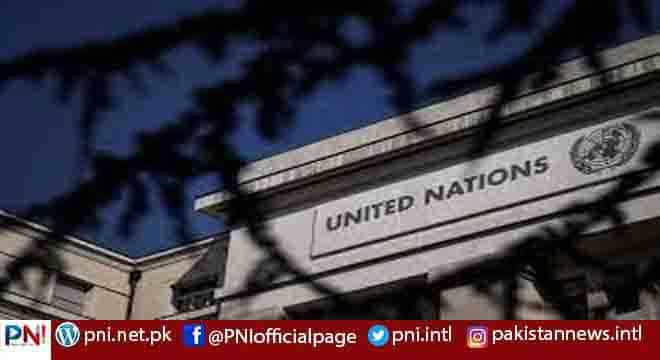Geneva, June 22 (AFP/APP):Rights groups appealed Wednesday for the next UN rights chief to be appointed through a swift, open process, calling for a “courageous” nominee to stand up to powerful countries.
More than 60 non-governmental organisations, including Amnesty International, Human Rights Watch and the International Federation for Human Rights, sent an open letter to United Nations Secretary-General Antonio Guterres about what they hoped to see in the next high commissioner for human rights.
Michelle Bachelet made the surprise announcement last week that she would not stand for a second four-year term after her mandate ends on August 31.
But so far there has been no indication from Guterres on who he has in mind to fill the position.
The groups said the appointment should be “open, transparent and merit-based,” that it should involve consultations with independent rights organisations and activists.
They insisted it was “imperative that this process move quickly”.
The organisations also emphasised the kind of candidate they would like to see, hinting they would prefer a break with Bachelet’s discreet, diplomatic style.
“The high commissioner’s role is to be the world’s leading human rights advocate, as distinct from the role of a diplomat or political envoy,” they wrote.
“Demonstrating solidarity with victims and publicly calling out abuses should take precedence over friendly dialogue with governments.”
– ‘Rights champion’ –
The NGOs insisted that the position of UN rights chief was “critical… particularly at a time when human rights standards and mechanisms face enormous pressure from powerful governments”.
The post “requires a human rights champion who is courageous and principled”, they said.
Bachelet, 70, has faced significant criticism over her reluctance to publicly admonish countries over alleged rights abuses.
A torture victim under dictator Augusto Pinochet, she went on to become the first woman to serve as president of Chile and has instead emphasised the importance of dialogue and diplomacy in advancing rights.
This approach has not sat well with some and she has faced significant pushback over her restraint, especially on China.
She faced significant criticism for not speaking out more forcefully against allegations of widespread rights abuses in the country, including during her trip there last month — the first in 17 years by a UN rights chief.
And she has faced pressure to release a long-delayed report on the situation in the Xinjiang region, where Beijing stands accused of detaining more than one million Uyghurs and other Muslim minorities — charges it vehemently denies.
She has vowed the report will be released before she steps down.
Contrary to other UN agencies like the World Heath Organization and the International Labour Organization, where member states elect the leader, the High Commissioner for Human Rights is appointed by the UN Secretary-General.
The General Assembly, which created the high commissioner position in 1993, determined that the rights chief appointments should be conducted “with due regard to geographical rotation”.
This principle has not been fully respected in the past, with several of Bachelet’s predecessors coming from Latin America.
The only region that has yet to boast a high commissioner is the Eastern European region, which includes Russia.
Follow the PNI Facebook page for the latest news and updates.









